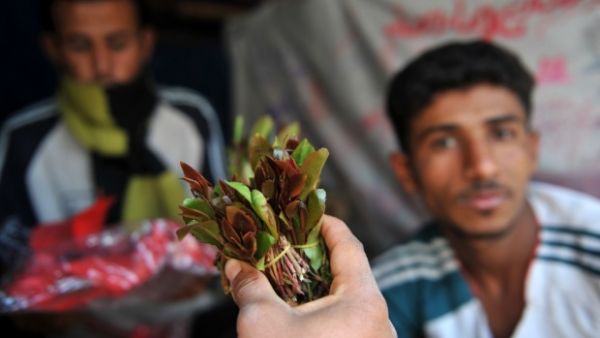Authorities in the southern Yemeni city of Aden have decided on Saturday to forbid the import of Qat for the day of the week with the exception of Thursday and Friday, in an unprecedented decision that is considered to the first of its type in 26 years.
Authorities have stated the decision comes as a result of the damage that Qat has done to society, such as creating traffic and disrupting the work of police officers among other things.
This is the first decision of its type since the beginning of the seventies in Southern Yemen, where it was not permitted to take Qat except for Thursday and Friday in Aden, as well as the rest of the cities in the south, until the country was reunified in 1990.
Qat is used widely by Yemenis throughout the country, and is the most profitable and important crop in the country due to its widespread consumption. It is extremely popular in the markets, bringing in approximately 10 million dollars per day in its trade.
The majority of Yemenis (25 million people as of 2015) chew Qat as a normal thing in the afternoons as a social and individual activity. Approximately 700 million Yemenis, both men and women, farm the Qaat tree and its usage among the population exceeds about a third of Yemenis both men and women. The bring in more then a billion dollars annually, and put in more than 20 million man hours per day in seeking it out and abusing it.
Official government reports have said that what is spent on Qat, considered an easy plant to grow and farm, can add up to 35 percent of household income for some families.
Official reports also warn that Qat is a major problem for agriculture considering that it takes a massive portion of yemeni groundwater. Qat cultivation accounts for about 30 percent of all Yemeni groundwater usage.
The UN has warned that Yemen is facing an impending humanitarian crisis, with over one half of its population facing threats to its food and water security. Agriculture must be an integral part of the response as humanitarian organizations will not be able to meet the needs of Yemenis. The UN also lacks funding to help Yemen during the grain growing season.








